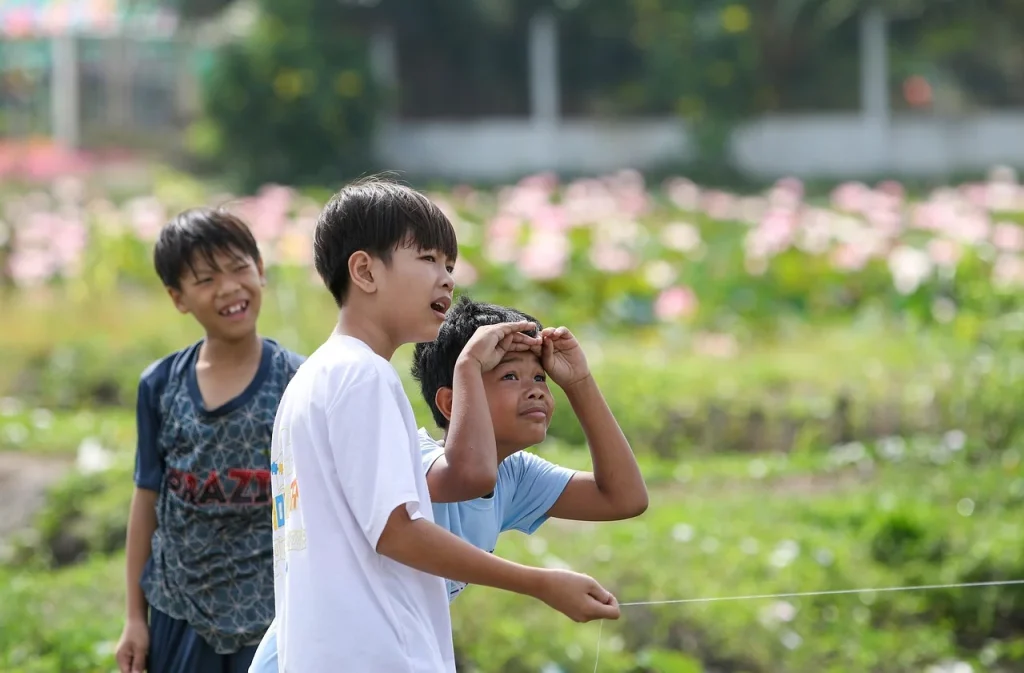As carers and parents, it is our natural response to protect children from adversity. When we observe them struggling, our initial reaction is to intervene and sort it out. As much as it comes from love, by intervening we might be robbing them of an opportunity to learn one of life’s most valuable skills: resilience. The capacity to recover from adversity is a foundation of early childhood. This is most effectively developed in supportive learning settings where children are empowered to develop through positive, achievable adversity, laying the groundwork for a strong and competent future.
What Does Resilience Look Like in a Preschooler?
Early childhood resilience is not stoic or unemotional. Rather, it is a series of flexible skills that kids acquire over the course of time. It appears as a willingness to start over after a small failure, an emerging capacity to deal with intense emotions without a complete meltdown, or the ability to tolerate a small disappointment and let it go. These behaviours mark an improving capacity to manage emotions, flex in the face of change, and keep going when things don’t quite work out. Promoting this involves establishing a safe and nurturing atmosphere where children are comfortable enough to venture and learn from trial and error.
The Power of ‘Productive Struggle’
Educators often speak of ‘productive struggle.’ This refers to the optimal zone where a task is challenging enough to require focus but not so overwhelming that it leads to discouragement. When a child is grappling with a new skill or a minor problem, allowing them a moment to think for themselves is incredibly beneficial. By observing and offering gentle encouragement instead of an instant solution, we communicate our belief in their capabilities. A quality kindergarten mornington peninsula program provides the perfect setting for this type of supported, independent growth, which is fundamental to building self-confidence and problem-solving skills.
There’s plenty more where that came from—browse our other helpful content!
Making Room for Failure
A child’s ability to tackle challenges is directly correlated to the environment that adults provide. When mistakes are received with negativity and impatience, children can learn pretty quickly to play it safe. When we instead model a constructive and positive approach to errors, it changes everything for them. It’s essential to redefine mistakes as merely learning opportunities and not as failures. This approach views children as capable investigators, where every attempt, successful or not, is a valuable part of the learning journey. It builds a foundation of psychological safety, encouraging curiosity and exploration without the fear of judgement.
The Role of Social-Emotional Learning
Resilience is deeply connected to social and emotional intelligence. A child cannot navigate social setbacks without the tools to understand their feelings and communicate their needs. A core part of any holistic curriculum involves helping children identify and name their emotions. Guiding them to recognise feelings like frustration or disappointment is the first step towards managing them effectively. Through supported group play and interaction, children learn valuable skills like sharing, taking turns, and resolving minor disagreements, building the foundational social abilities that will help them navigate relationships with confidence and empathy throughout their lives.
Outdoor Play: Nature’s Resilience Trainer
The outdoors is a great classroom for developing resilience. In contrast to highly structured indoor environments, the environment outside is rich with dynamic and diverse challenges. Moving through various landscapes, working with natural features, and learning to deal with shifting conditions all build a child’s adaptive ability. This kind of active play fosters healthy risk management, allowing children to learn about their physical limits and strengths in an actual context. Unstructured time spent outdoors facilitates exploration and problem-solving, developing physical confidence as well as a strong, can-do spirit that carries over to every aspect of learning and development.
Developing Independence Through Daily Habits
Resilience is not solely constructed through focused play periods; it is incorporated into the fabric of daily habits. Teaching children to assume age-suitable responsibilities develops a strong sense of self-efficacy. Enabling them to take part in basic self-care and classroom activities enables them to view themselves as capable contributors to their group. Completing each task, however minor, sends the signal, “I am able.” This developing autonomy is one of the essential ingredients of a child’s belief that he or she can master the challenges they face, developing a strong sense of personal agency and responsibility.
A Partnership in Building Strong Children
Building resilience is a process that happens slowly, piece by piece, moment by moment. It is not about exposing children to challenges but giving them the support, encouragement, and room they require to get over minor obstacles on their own. Parents’ and teachers’ jobs are to be a secure base and a guide. By accepting that mistakes are learning opportunities and effort is celebrated over perfect results, we enable children to develop a solid inner core. This essential collaboration between home and early years settings provides an essential platform, laying the groundwork for children not only to prepare them for school but also for a capable and content life.
Don’t stop here—take a look at what else we’ve got for you!







